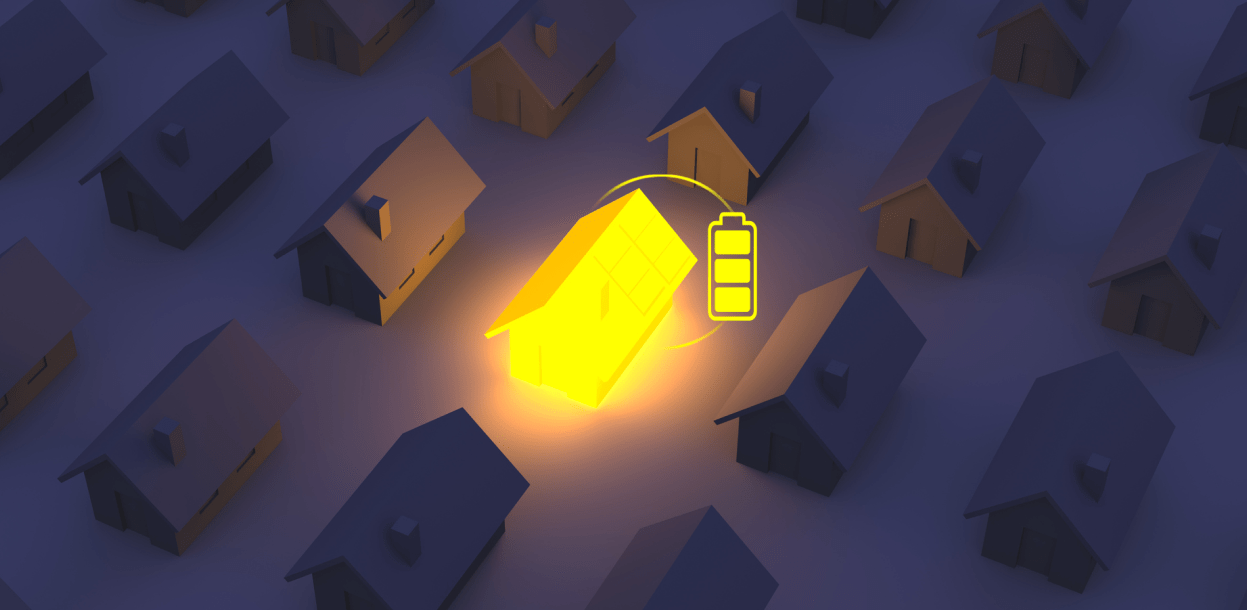
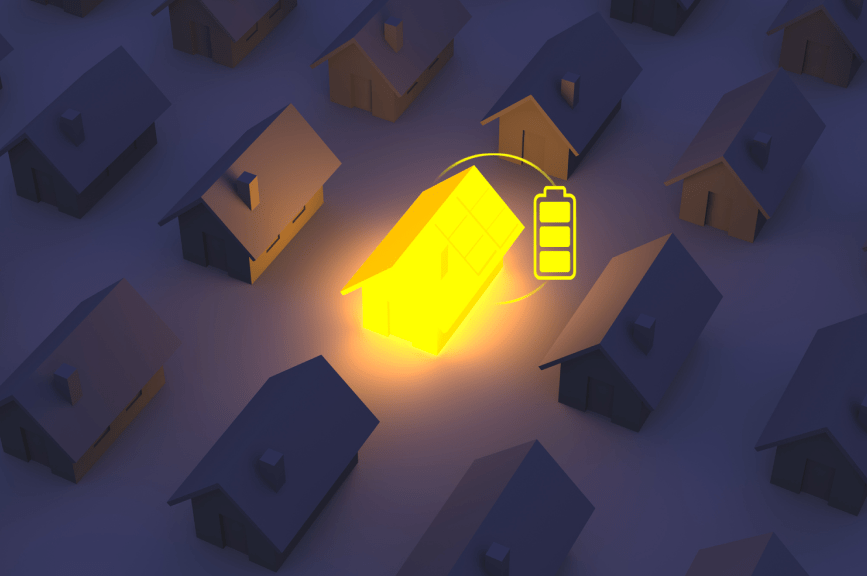
Imagine being at home with your family when, suddenly, the electricity goes out in your neighborhood. If you made the investment in solar panels and battery backup, you may have nothing to worry about.
When you combine solar panels with solar batteries for home, you’re essentially creating your own mini power plant. When your system operates independently from the grid in this way, it’s referred to as “islanding.”
Islanding is a big deal during power outages because, unless you have the battery, your solar panels will be turned off by your system’s inverter firmware to prevent backfeeding.
Knowing how to use solar panels during power outage situations will ensure you can produce and store the energy needed to power essential lights and appliances while the grid is down.*
Here are a few things you should be aware of when you have solar panels and battery backup during a power outage.
How Long Do Solar Batteries Last?
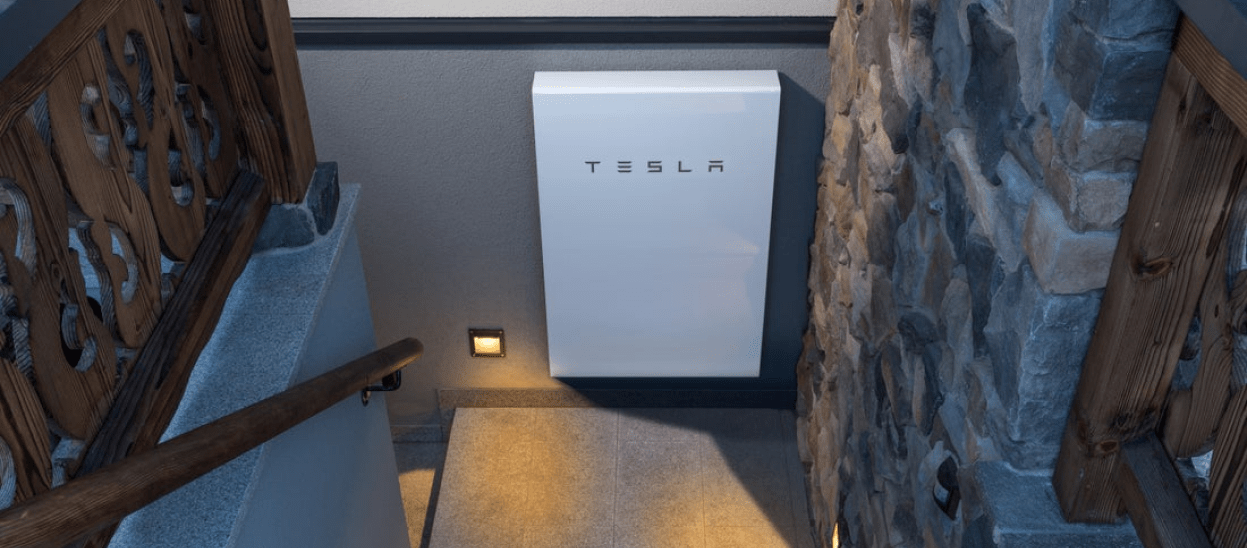
How long do solar batteries last during a power outage? The amount of backup energy you’ll have depends on three main factors:
- The power capacity of your battery storage system
- The amount of power your solar panels produce
- Your electricity needs during an outage
The power capacity of your battery storage system
Knowing the capacity of your battery storage system can be helpful to have an idea of how much power you can rely on during an outage.
If you have a Tesla® Powerwall, Generac® PWRcell or EnPhase® IQ battery, you can use this solar battery duration tool to get an approximate estimate of how long your battery backup will last when the grid is down, taking into consideration your specific electricity needs.
If you know there’s going to be a weather event where a power outage might occur, you may need to reconfigure your battery to backup power mode. If you’re a Sunnova customer, this can be done through the Sunnova Customer Portal app or portal.
It's important to note — you should never drain your solar battery completely. Keeping a minimum charge of 5-10% is vital to maintain the health of your system, and ensure your solar panel inverters can start, recharge the battery and store more power the next day.
The amount of power your solar panels produce
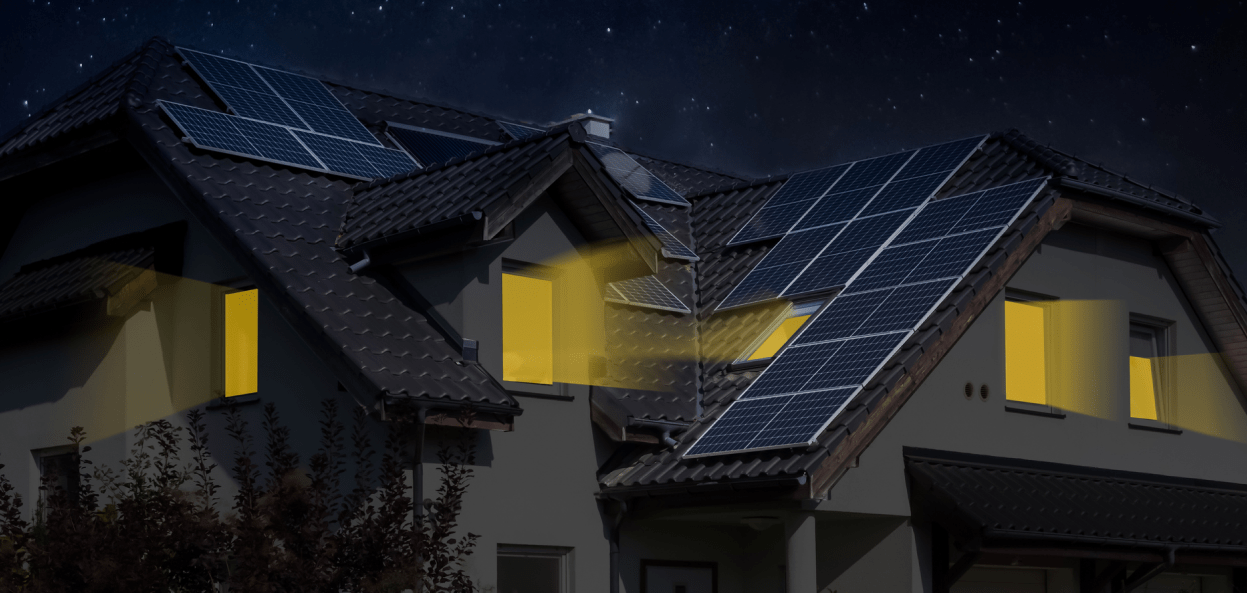
During an outage, the battery gets power from your solar panels, so knowing how much power the panels produce, on average, will help you determine how much — and how long — the backup power can meet your energy needs.
Let’s say your solar panels produce 5 kilowatts (kW) of electricity every hour. If you assume weather conditions limit the performance of the system to 50% of its full power, and that the typical day features 4 hours of peak sunlight,* you can conclude your system produces 10 kWh per day.
Knowing that the average solar battery capacity is 10 kilowatt-hours (kWh), your panels should be able to recharge your battery during the day, so the battery can power your essentials overnight.*
Your electricity needs during an outage
The average American home’s electricity consumption is, on average, 29 kilowatt hours (kWh) per day.* The more power you consume, the quicker your backup power supply will drain. To avoid this, try only powering critical, everyday appliances that use relatively little electricity, like:
- Lighting
- Fridge & Freezer
- Garage Door Opener
- Electric-Powered Cookware
- Wi-Fi & Select Power Outlets
While heating or cooling may be necessary depending on the weather, HVACs take a lot of electricity to run, and use may need to be limited regardless of your battery capacity. Although, if you have an electric heat pump or gas furnace, you won’t need much power to keep the heat on.
How a Solar Battery is Used in a Blackout

Even if the power is out for several days, your battery — when put into backup power mode — can continue to charge and power your home – at least in part - when paired with a solar energy system.
- During the day — if the sun is out — your solar panels can continue to power essential appliances, or your whole home, and charge your battery like usual.
- At sundown, you will only be able to power your home with the energy stored in your battery, until it’s depleted to 5 - 10%.
Remember, you should never drain your battery energy storage system completely, as it could affect the device's health and may prevent you from continuing to use it during a blackout.
Power When You Need It Most
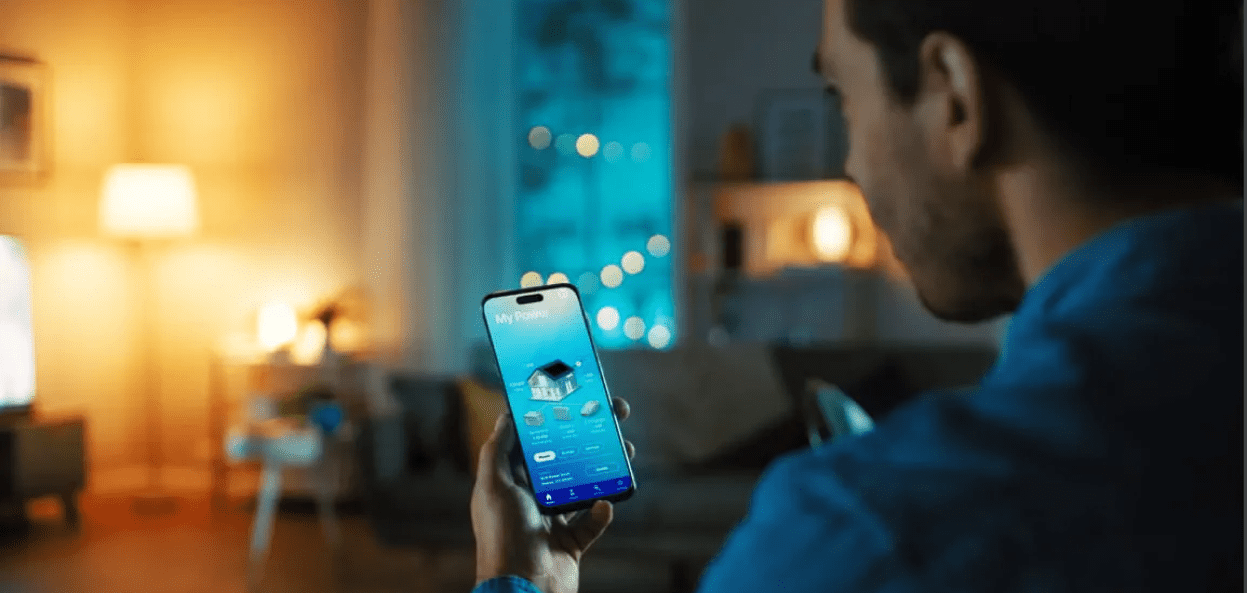
Want to add a battery with your existing solar energy system, or invest in both green technologies for your home? If you have a home solar system without a battery that is connected to your utility, your home solar system will not work during a power outage.
With Sunnova’s solar + battery bundle, you get resilient backup power to run your essential appliances or your whole home during a power outage – whether you have an existing solar system or not.
If you have both solar panels and battery, your system can continue producing energy during the day and store excess power in the rechargeable battery for use at night, or anytime it’s needed.*

